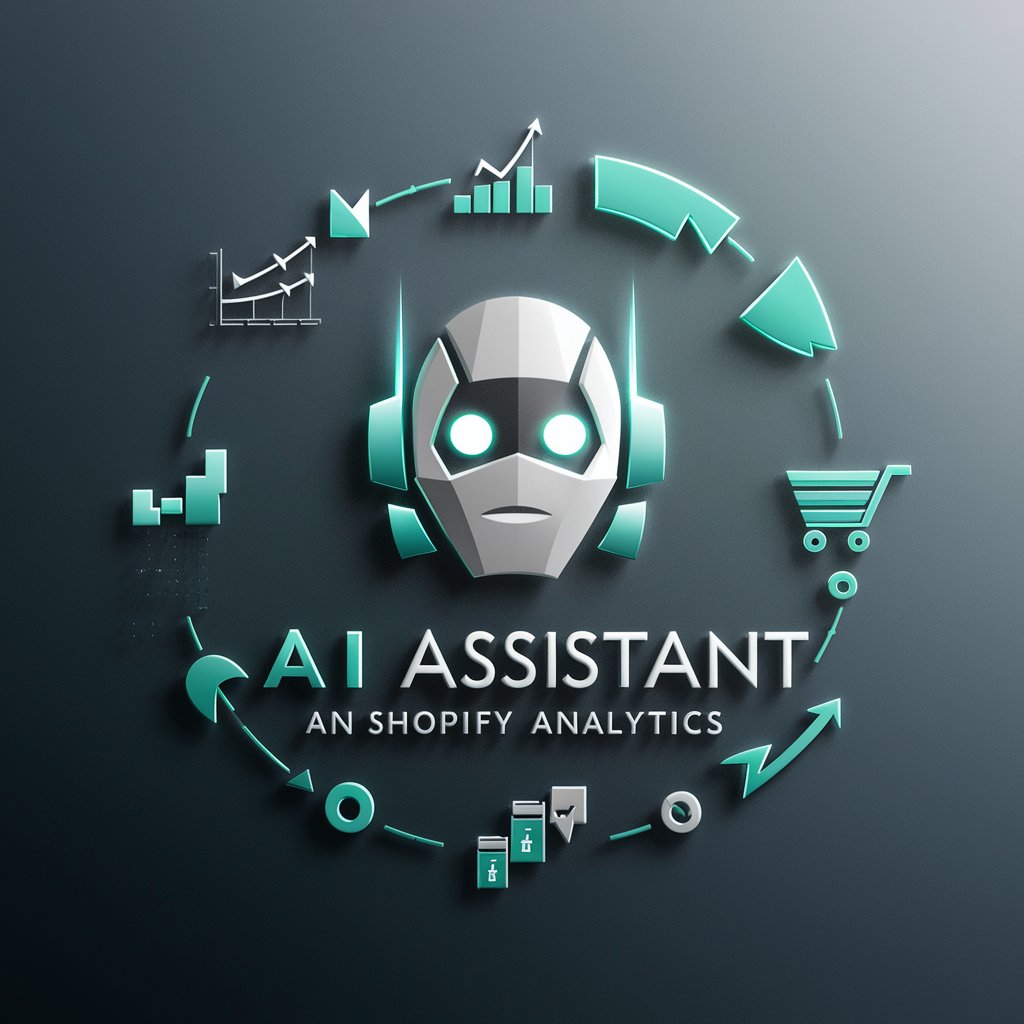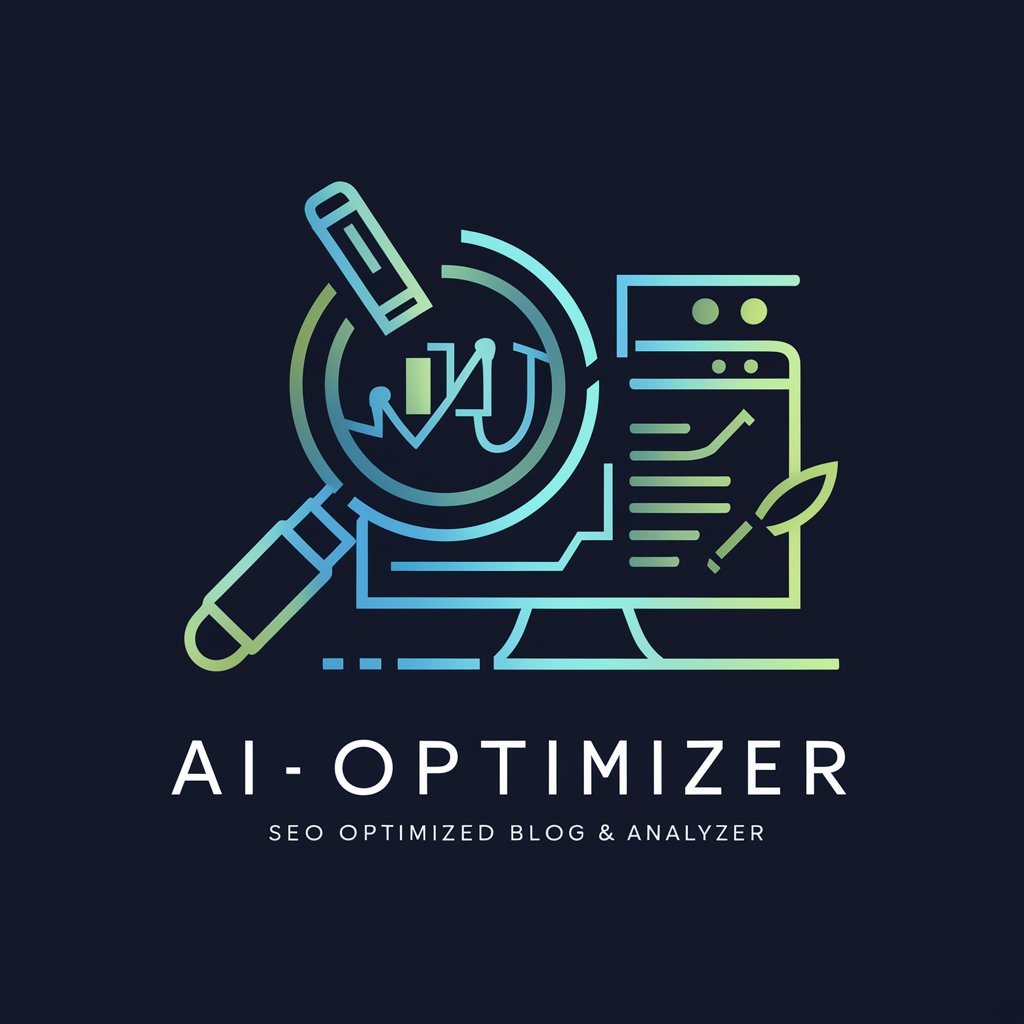Ecommerce & Shop Analytics Helper - AI-Powered Shop Analytics

Welcome! Let's dive into your Shopify analytics and uncover valuable insights.
Transform Data into Success with AI
How can I interpret the sales report to improve my store's performance?
What insights can I gain from customer behavior reports?
How do I optimize my marketing strategies based on acquisition data?
What are the key metrics to focus on in my Shopify analytics?
Get Embed Code
Ecommerce & Shop Analytics Helper Overview
Ecommerce & Shop Analytics Helper is designed to assist Shopify merchants in understanding and leveraging their store's data for improved performance. By interpreting sales, customer behavior, acquisition reports, and more, it aims to make complex data comprehensible and actionable. For example, it can explain the significance of a sudden spike in traffic from a specific source, or why certain products are performing better than others, enabling store owners to make informed decisions. The tool is built to serve users with varying levels of expertise in data analytics, simplifying the process of data-driven decision-making through detailed insights and advice. Powered by ChatGPT-4o。

Core Functions of Ecommerce & Shop Analytics Helper
Interpretation of Sales Data
Example
Explaining the impact of promotional campaigns on sales figures.
Scenario
A merchant notices a 20% increase in sales during a specific week. The helper analyzes the data, correlating the increase with a recently launched promotional email campaign, highlighting the campaign's success and suggesting similar future strategies.
Customer Behavior Analysis
Example
Identifying trends in customer purchase patterns.
Scenario
A store owner sees a recurring purchase pattern where customers often buy accessories shortly after purchasing a main item. The helper suggests setting up automated cross-sell recommendations to capitalize on this behavior, potentially increasing average order value.
Acquisition Report Insights
Example
Determining the most effective marketing channels.
Scenario
Upon reviewing acquisition reports, the helper identifies that social media platforms are driving the most traffic but not the highest conversion rates. It recommends reallocating some marketing budget to SEO and content marketing, which have lower traffic but higher conversion rates.
Who Benefits from Ecommerce & Shop Analytics Helper?
New Shopify Merchants
Beginners who are not yet familiar with interpreting ecommerce data. They benefit from simplified explanations and actionable insights, helping them to quickly understand their store's performance and how to improve it.
Experienced Ecommerce Entrepreneurs
Veterans looking to optimize their store's performance with advanced analytics. They use the helper to dive deeper into data, uncover hidden opportunities, and refine their strategies for increased efficiency.
Marketing Professionals
Marketing specialists focused on ecommerce can leverage detailed acquisition and customer behavior analytics to fine-tune campaigns, maximize ROI, and drive targeted traffic more effectively.

How to Use Ecommerce & Shop Analytics Helper
1
Begin by visiting yeschat.ai for a complimentary trial, accessible without the need for a login or ChatGPT Plus subscription.
2
Connect your Shopify store to the Ecommerce & Shop Analytics Helper by providing necessary permissions and access to your store's data.
3
Familiarize yourself with the dashboard and available reports, which include sales, customer behavior, and acquisition metrics.
4
Use the analytics to identify trends, customer preferences, and areas for improvement in your store's operations and marketing strategies.
5
Regularly consult the Helper for ongoing insights and apply its recommendations to optimize your store for better performance and customer engagement.
Try other advanced and practical GPTs
Love Me or Not
Deciphering Hearts with AI-Powered Insights

全球AI快讯
Stay Ahead with AI-Powered Global News

AI Accounting Advisor (AAA)
Empowering Financial Literacy with AI

Salesforce Org Discovery Copilot
AI-Powered Salesforce Org Mastery

Social Media Post Creator
Elevate Your Social Media with AI-Powered Creativity

Sam Sulek GPT
Fitness Advice with a Humorous Twist

The FAANG Interview GPT
Ace Your FAANG Interviews with AI-Powered Prep

Only Python Code GPT
Your AI-Powered Python Coding Assistant

头像助理
Craft Your Digital Identity with AI

Dr. Maya Patel (Environmental Consultant)
Empowering sustainable decisions with AI expertise

SEO Optimized Blog Writer and Analyzer
Elevating Blogs with AI-Driven SEO Insights

Back to the Future Adventure Master
Reviving cinematic adventures through AI

Frequently Asked Questions about Ecommerce & Shop Analytics Helper
What key metrics can Ecommerce & Shop Analytics Helper track?
This tool tracks crucial metrics like sales performance, customer behavior patterns, website traffic sources, conversion rates, and product popularity.
How can this tool help in improving my marketing strategies?
By analyzing customer acquisition and engagement data, the tool offers insights into effective marketing channels, customer demographics, and helps in tailoring your marketing efforts for better ROI.
Can Ecommerce & Shop Analytics Helper assist in inventory management?
Yes, it provides insights into product sales trends and customer preferences, aiding in making informed decisions about inventory stocking and product development.
Is this tool suitable for beginners in ecommerce?
Absolutely, it's designed with a user-friendly interface and provides clear insights, making it accessible for beginners while still being powerful enough for advanced users.
Does the tool offer any predictive analytics?
While it focuses on providing current and historical data analysis, it helps in identifying trends that can inform future business strategies, but it does not offer direct predictive analytics.
